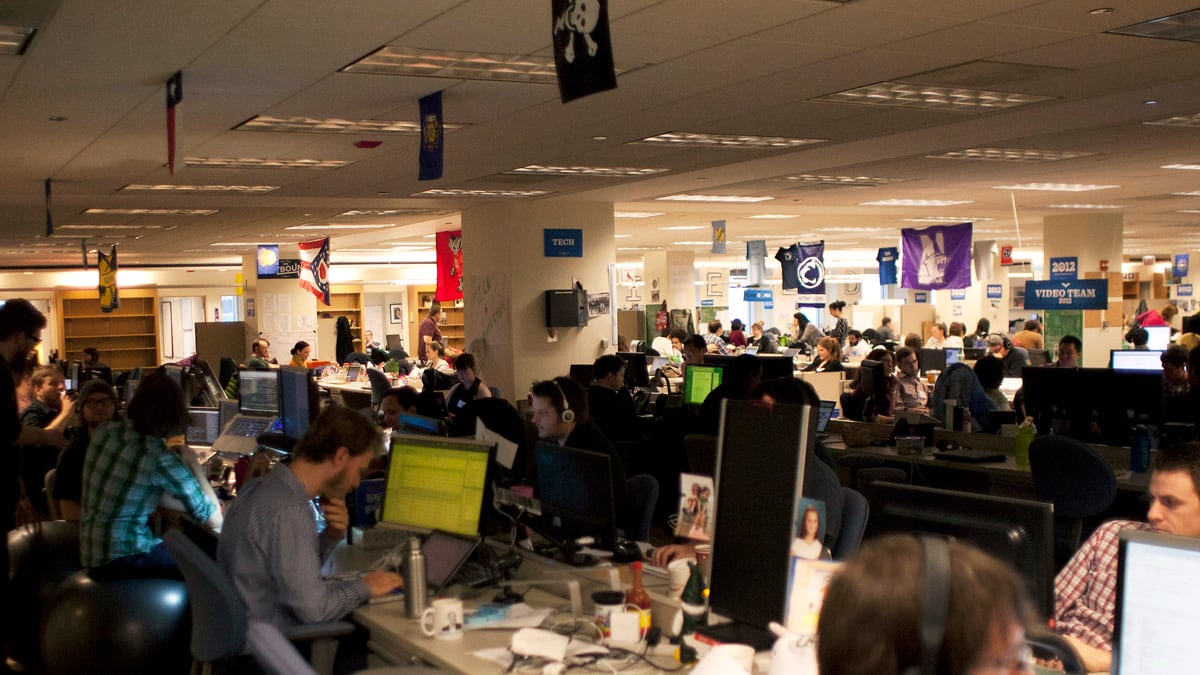Democrats have long feared that the Citizens United decision would open the floodgates to conservative billionaires flooding the airwaves to “Swift Boat” President Obama. After all, compared with the brutal efficiency of “the vast right-wing conspiracy,” progressive independent expenditure efforts have seemed plagued by blunders and miscues.

The Koch brothers weren’t the first billionaires to fund third-party efforts to sway a presidential campaign in the post-McCain-Feingold era of campaign finance. Prior to the 2004 election, George Soros, along with Progressive Insurance magnate Peter Lewis, funded two linked 527s (named for the section of the tax code that created them), Americans Coming Together (ACT) and the Media Fund.
These 527s—intended to be the cornerstone of an independent effort to beat George W. Bush—failed. ACT’s voter-contact effort conflicted with the outreach efforts by the John Kerry campaign and the DNC. They talked to the same voters, harassed the same volunteers, and generally gave each other migraines. While Kerry tried to run a positive, reassuring campaign, the Media Fund flooded swing states with attack ads targeting Bush that mostly missed the mark while muddling the Democratic message. The 527s were legally prohibited from communicating with a campaign, and the result was a mess. Democratic “messaging was all over the map,” said top Bush strategist and Daily Beast contributor Mark McKinnon. ”And it definitely hurt the campaign.”
Republican groups that year didn’t do much voter contact, just television ads—but those ads were on message and impactful. They aired negative ads like the Swift Boat spots and positive ones like Ashley’s Ad that hewed to a simple, effective theme of “steady leadership in times of change.”
The failure of Democratic outside groups haunted the party in 2008, and the Obama campaign specifically warned donors against donating to them. That, combined with John McCain’s scruples, meant that independent expenditures played a much smaller role four years ago. But Citizens United changed everything.
The 2010 decision gave independent groups broader rein. Now they could explicitly tell voters to vote for or against candidates, which 527s were prohibited from doing. Republicans took advantage of the decision right away, which helped them pick up six Senate seats and reclaim the House in November. That shellacking changed Democrats’ perspective on super PACS.
It hadn’t yet dawned on Democrats that Citizens United eliminated many of the problems that plagued 527s in 2004. Prior to Citizens United, coordination of any sort was legally problematic. “If you whispered one piece of data, you’re wearing an orange jumpsuit,” joked prominent Republican strategist Rick Wilson, tongue only somewhat in cheek. Since 2010, it’s a far less restricted playing field. While Republican outside groups have often had a small number of wealthy backers, relatively easily kept on the same page, the shift is critical for Democrats, whose donors tend to be bickering and competing interest groups, particularly labor unions, that can be difficult to herd together.
“Super PACs cannot basically obtain nonpublic info about plans, projects, strategies, and needs,” said prominent Democratic campaign-finance lawyer Joe Sandler. But, he said, “they don’t have to" exchange such private information to function efficiently, since “the people that are running the [super PACs] are people who worked closely with the candidates before and have a good idea what they know and how they think. That’s not coordination.”
Sharing strategy memos, publishing opposition research, or virtually any other type of communication—none of it is legally coordination, provided that the information is publicly available. And even that limitation applies only to campaigns. Super PACs are free to coordinate with each other.
Rodell Mollineau, the head of the Democratic super PAC American Bridge, said he is confident that Democratic super PACs will work smoothly together. “We communicate all the time,” he said. “What you’re going wind up seeing is the most coordinated independent-expenditure effort ever. We’ve had conversations with all of [the other Democratic super PACs, and] there will be many opportunities for us to work together.” Presumably all of these joint efforts will be in sync with the Obama campaign.
Citizens United also benefited Democrats by freeing labor unions, which provide the de facto field operation for many Democrats, to communicate freely with nonmembers about candidates. This “empower[s] workers to reach into their social networks,” said Jeff Hauser, the political-media lead at the AFL-CIO. “Citizens United was a terrible decision,” said Hauser, but “it empower unions.” Labor has felt the power in its response to recent attacks on it by Republican governors in states like Wisconsin, Ohio, and Indiana. In fighting back against challenges to collective bargaining and automatic dues deductions, competing factions in the labor movement became far more willing to cooperate than they had been in the past.
Democrats will still likely be outspent this fall, but it won’t be by the striking margins of 2010. The question is whether they will run into the same coordination issues they suffered in 2004. The standby gibe about the Democratic Party has long been, in the words of Will Rogers, “I’m not a member of any organized party. I’m a Democrat.” But one of the unintended byproducts of Citizens United may be Democrats finally getting their act together.






